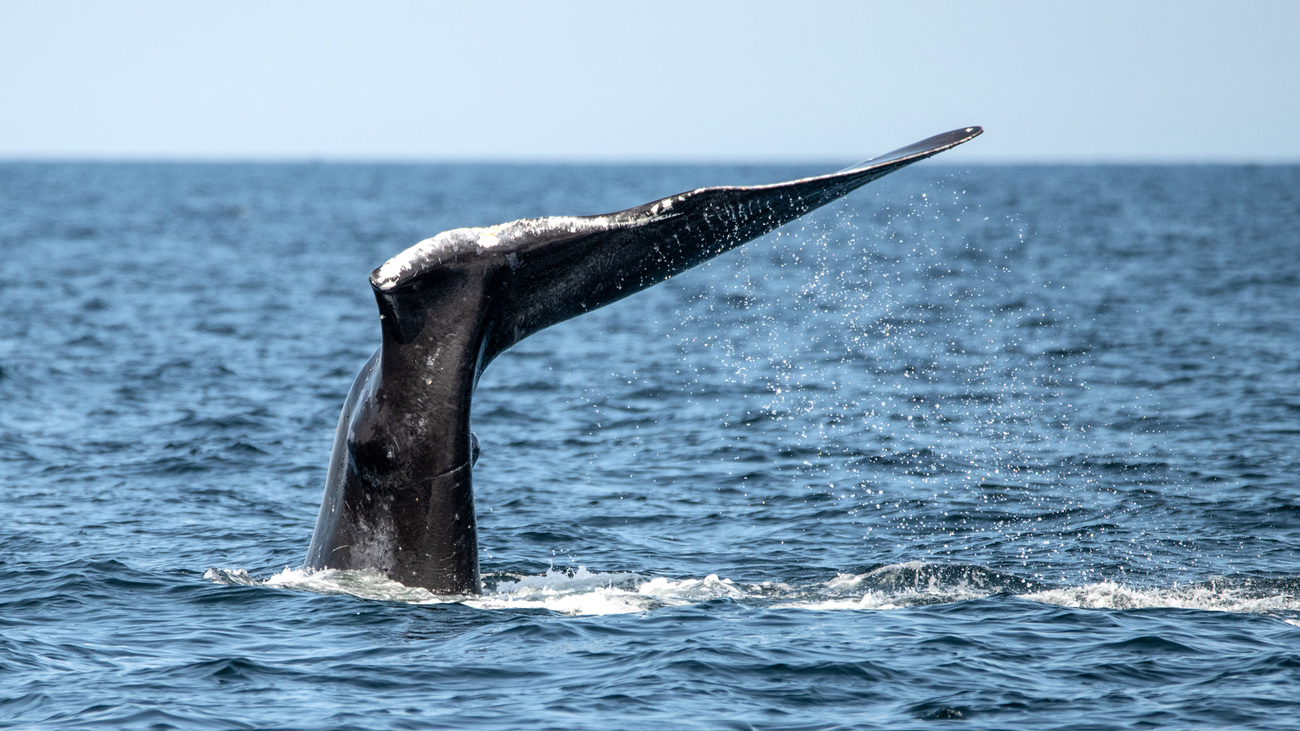Saving the North Atlantic right whale - North America
Don't fail our whaleExpert panel urges Congress to support vessel speed restrictions to protect critically endangered whale
Expert panel urges Congress to support vessel speed restrictions to protect critically endangered whale

Washington, D.C. (October 19, 2023) – Leading conservation and environmental experts today called upon members of Congress to support updated vessel speed restrictions to protect the critically endangered North Atlantic right whale.
The experts made their case on Capitol Hill during a congressional briefing based on the National Oceanic and Atmospheric Administration’s (NOAA’s) proposal last year to update vessel speed regulations.
These science-based conservation measures are designed to safeguard the fewer than 340 remaining critically endangered North Atlantic right whales by strengthening the necessary temporary, “slow speed zones” in right whale habitats during critical seasons. Globally accepted research shows that slowing vessel speeds to 10 knots reduces a whale’s risk of death from vessel strikes by 80%-90%.
Experts from the International Fund for Animal Welfare (IFAW), Animal Welfare Institute, and Oceana spoke to congressional leaders and staffers about the science-based evidence, industry inclusive process, and critical need for updating the vessel speed rule.
“North Atlantic right whales are on the brink of extinction and human activity is to blame. In our waters, vessel strikes are the leading cause of death and injury. We see firsthand the trauma and devastation these vessel strikes cause for the species-- blunt force trauma, lacerations and death,” said Katie Moore, Deputy Vice President - Animal Rescue, International Fund for Animal Welfare. “The most effective way to reduce collisions is to slow vessels down in right whales’ habitat. We need to speed up the process of slowing down these vessels before it’s too late.”
Slowing down is the leading way to reduce the threat of vessel strikes. The Endangered Species Act and the Marine Mammal Protection Act require the government to take reasonable actions to protect right whales—and speed restrictions are the best way to protect them from vessel strikes before it’s too late.
Since NOAA first established the 2008 vessel speed rule, whale migration patterns have changed due to a variety of reasons including rising sea temperatures, prey destruction, and human interactions. Last year, NOAA proposed updates to the 16-year-old rule to reduce death and serious injury to right whales. These updates increase the size of vessels included under speed restrictions from 65 feet and greater to vessels 35 feet and greater. This is because since the rule was originally enacted, approximately 40% of known strikes have involved vessels in this smaller size class. Additionally, this would establish mandatory dynamic speed zones when whales are known to be in an area outside a seasonal zone as well as enhanced safety measures for boaters.
Right whales, especially mother-calf pairs spend a majority of their time traveling near the surface and their slow movement and dark color combined with the ocean’s dark hues and waves make them difficult to detect, increasing the risk for collision as they migrate between Canada and central Florida. Since 2017, 18 right whales are known to have been struck. Only one third of all right whale mortalities are “seen,” meaning these figures are likely much larger.
A new IFAW study found the majority of Americans (80%) support reducing vessel speeds to protect North Atlantic right whales. NOAA recently announced its plans for the historic $82 million to conserve and recover endangered North Atlantic right whales.
NOAA estimates the total annual direct economic impact of capping certain vessels at 10 knots in certain areas to be $28.3 – 39.4 million with no expected impact on the volume or economic activity at potentially affected ports.
Notes:
Expert representatives included:
- Dr. Greg Silber, Former Coordinator of Recovery Activities for Endangered Whales, NOAA Fisheries Office of Protected Resource
- Katie Moore, Deputy Vice President Animal Rescue, International Fund for Animal Welfare
- Ericca Gandolfo, Policy Advisor, Animal Welfare Institute
- Connor Fagan, Federal Policy Manager, Oceana
Imagery / video can be found via hightail HERE.
Related content
Our work can’t get done without you. Please give what you can to help animals thrive.